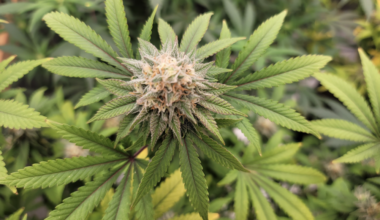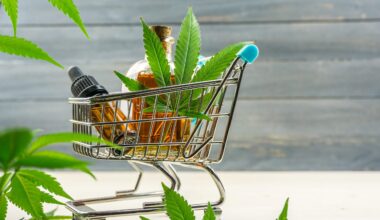“It’s time to truly end the failed war on drugs. This is a health issue and I’m calling upon all parliamentarians to do the right thing.”
By Doug Johnson, Filter
Right now, cities and provinces around Canada are pursuing decriminalization in piecemeal fashion. Recently, British Columbia and its largest city Vancouver applied for a Health Canada Exemption allowing the jurisdictions to decriminalize the possession of drugs including cocaine, amphetamines and opioids. Late last year, the Toronto Board of Health also voted in favor of asking for the exemption.
However, that leaves vast swaths of the country where people who use drugs will continue to be arrested and prosecuted for possession; according to Statistics Canada, in 2019 there were more than 30,000 possession cases in the country across various drugs including heroin, other opioids, methamphetamine and others. Experts add that the jurisdiction-by-jurisdiction approach will cause difficulties for people traveling from place to place.
Recently, Canada’s New Democratic Party (NDP)—a social democratic party that finished as the country’s fourth largest in last year’s federal elections—proposed a federal bill to decriminalize drug possession nationwide. The private member’s bill, Bill C-216, will be debated in the spring.
NDP leader Jagmeet Singh has publicly supported the motion. And according to Gord Johns, the NDP member of parliament for Courtenay—Alberni, BC, who put the private bill forward, it has a real chance of becoming law.
“It’s time to truly end the failed war on drugs,” Johns told Filter. He hopes fellow MPs from across the political spectrum will act to improve the health of Canadians, rather than try to garner votes. “This is a health issue and I’m calling upon all parliamentarians to do the right thing.”
The bill, functionally, has three parts. The first is the simple decriminalization of the possession of drugs. Johns said that decades of criminalization and the rise of extremely potent drugs adulterating the supply—along with a lack of timely access to harm reduction and recovery services—are fueling overdose deaths. Between January 2016 and June 2021 there were 24,626 “apparent opioid toxicity deaths” in the country, according to Statistics Canada. Between April and June of last year, there were 1,720, or 19 per day. “Decriminalization is a key part in a smart, effective, and scientifically-proven strategy to tackle the overdose epidemic,” Johns said.
The bill would also see the expungement of criminal records for possession charges, removing barriers that hamper many people in employment, housing and other areas of life.
The third part is the National Strategy on Substance Use Act. This would mandate the creation of a “national strategy to address the harm caused by problematic substance use by promoting a comprehensive public health approach,” the bill reads. Its functions include creating low-barrier access to safe supply, reducing stigma associated with substance use through various programs, and implementing prevention programs that address the factors—social and economic, among others—that lead to problematic drug use.
Experts in the field support the bill, but say there are a number of issues that need ironing out. According to Donald MacPherson, the executive director of the Canadian Drug Policy Coalition, decriminalization could make people who use drugs feel more comfortable accessing vital services, like health care, as well as reducing arrests. He told Filter that it’s past time for the ruling Liberal Party of Canada to move forward with decriminalization. Around 30 countries have already taken such steps, with widely varying models.
Brittany Graham, a community organizer and acting executive director of the Vancouver Area Network of Drug Users (VANDU), said that Canada’s current approach of municipalities and provinces applying for the Health Canada exemption doesn’t make sense. It leaves people who use drugs outside these areas still criminalized. And even within these jurisdictions, the varying rules would be tricky to navigate when traveling between, say, Toronto and Vancouver.
A national approach is more equitable, Graham told Filter. “It also makes things a lot simpler when there’s the same rule across the board.”
The bill is also light on details, as legislation tends to be at this stage. In particular, both MacPherson and Graham expressed concern over potential thresholds—the maximum quantities of drugs that would be considered “possession” under the law.
This question is controversial among the jurisdictions seeking exemptions, and a potential source of confusing differences. For example, even Vancouver and its province of BC have proposed different limits that a person (aged 19 and over) could carry. This is often broken down by drug classification. For instance, the BC model allows a person to carry a total of 4.5 grams of drugs on their person, while Vancouver’s model allows a person to carry a total of 3.5 grams, but with separate limits by substance such as only 2 grams of opioids, or 3 grams of cocaine.
The bill does not explicitly state what a national threshold would be. But MacPherson and Graham agreed that higher would be better. According to Graham, most people who use drugs in Vancouver will often purchase between 3 and 7 grams. However, this is in a city (and more particularly, the Downtown Eastside neighborhood) where drugs are relatively accessible and most people do not need to travel far to get them.
People who live in rural areas—or even city neighborhoods that are less walkable and have less access to public transit—may need to travel to stock up. Decriminalization therefore needs to follow people’s patterns of use, MacPherson said.
“Your purchasing patterns are different,” Graham said. “If you live close to a farmers’ market, you probably purchase [food] every day. But if you live in the suburbs, you probably go to the grocery store once a week and really bulk buy. That’s a thing you could say for a lot of rural and remote parts in BC and even more remote parts of Vancouver.”
Some people may also want to make larger purchases if they find someone selling a particularly good supply, while others may simply want to limit the number of times they interact with people who sell drugs. There’s also an economic rationale behind purchasing larger amounts: Buying in bulk is often more cost effective.
“By having a smaller [threshold], you’re always going to be punishing people for their economic status, the places they live, the access to safe supply they have,” Graham said.
MacPherson also pointed out that people who use drugs sometimes sell small amounts in order to make ends meet, and that this would constitute “trafficking” even if the current bill is passed. While he believes the bill could be the start of dismantling a “bad system.” And, he urged that if it’s passed, people who use drugs must be included in the process of hammering out the details. “We need to get it right,” he said.
Unlike safe supply programs, decriminalization also doesn’t directly address the problem of dangerously adulterated drugs, even if removing the fear of arrest would promote access to drug checking options.
Johns acknowledged these concerns, and said that finding the right thresholds would be an important factor. He also noted that police chiefs across Canada have, in the past, supported decriminalization, though that’s not universally the case; those in Alberta, for example, have argued that the province is not yet ready for it. But he remains confident that this is doable. “I’m not worried about the threshold piece as much. We can work that out,” he said.
It’s hard to say if this bill will ever become law. On one hand, private bills rarely do—though it is more likely in the case of minority governments, like Canada’s current one. But in the country’s last election, each of the major political parties gave at least a tacit acknowledgement that prosecuting people for possession wasn’t the right path.
Johns claimed that some other MPs from different parties—though he declined to say which—have privately supported his effort. “We’re hopeful,” he said.
This article was originally published by Filter, an online magazine covering drug use, drug policy and human rights through a harm reduction lens. Follow Filter on Facebook or Twitter, or sign up for its newsletter.
Medical Disclaimer:
The information provided in these blog posts is intended for general informational and educational purposes only. It is not a substitute for professional medical advice, diagnosis, or treatment. Always seek the advice of your physician or other qualified healthcare provider with any questions you may have regarding a medical condition. The use of any information provided in these blog posts is solely at your own risk. The authors and the website do not recommend or endorse any specific products, treatments, or procedures mentioned. Reliance on any information in these blog posts is solely at your own discretion.






